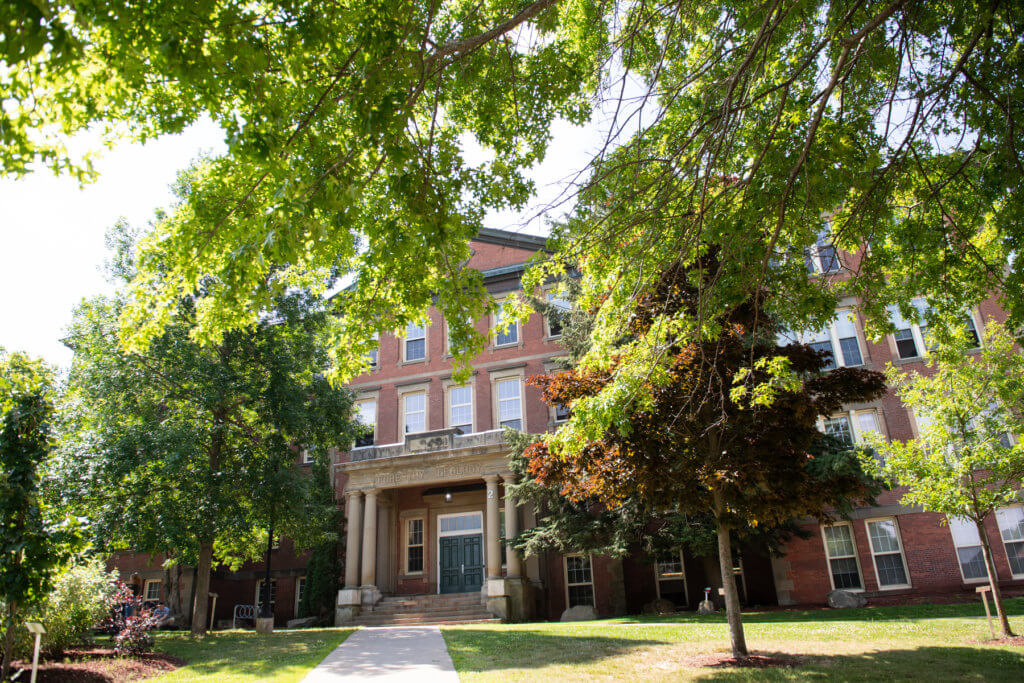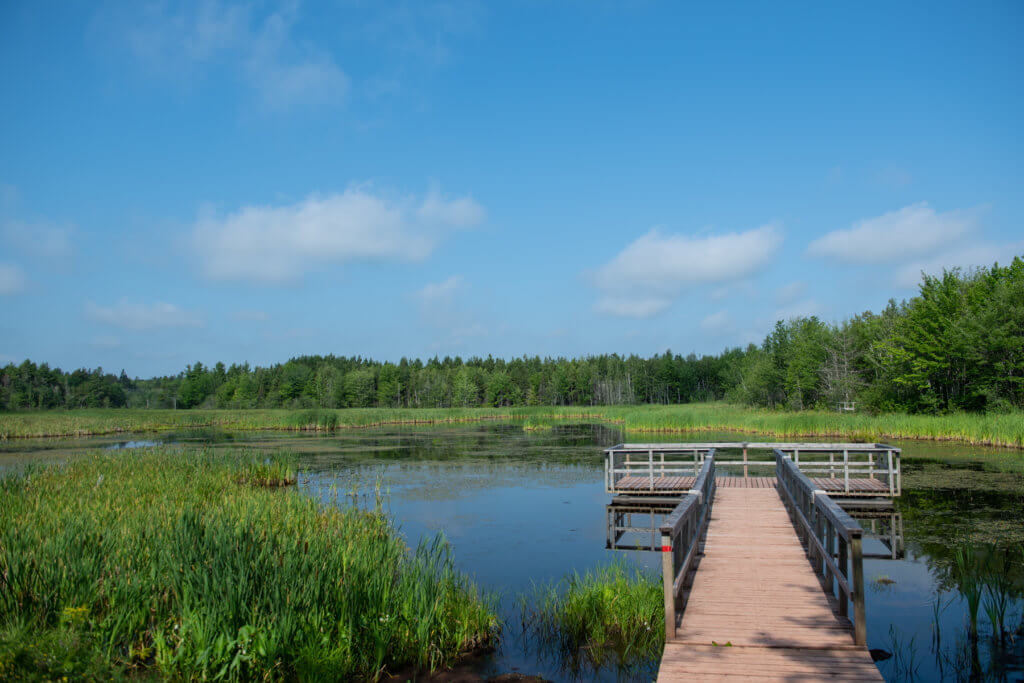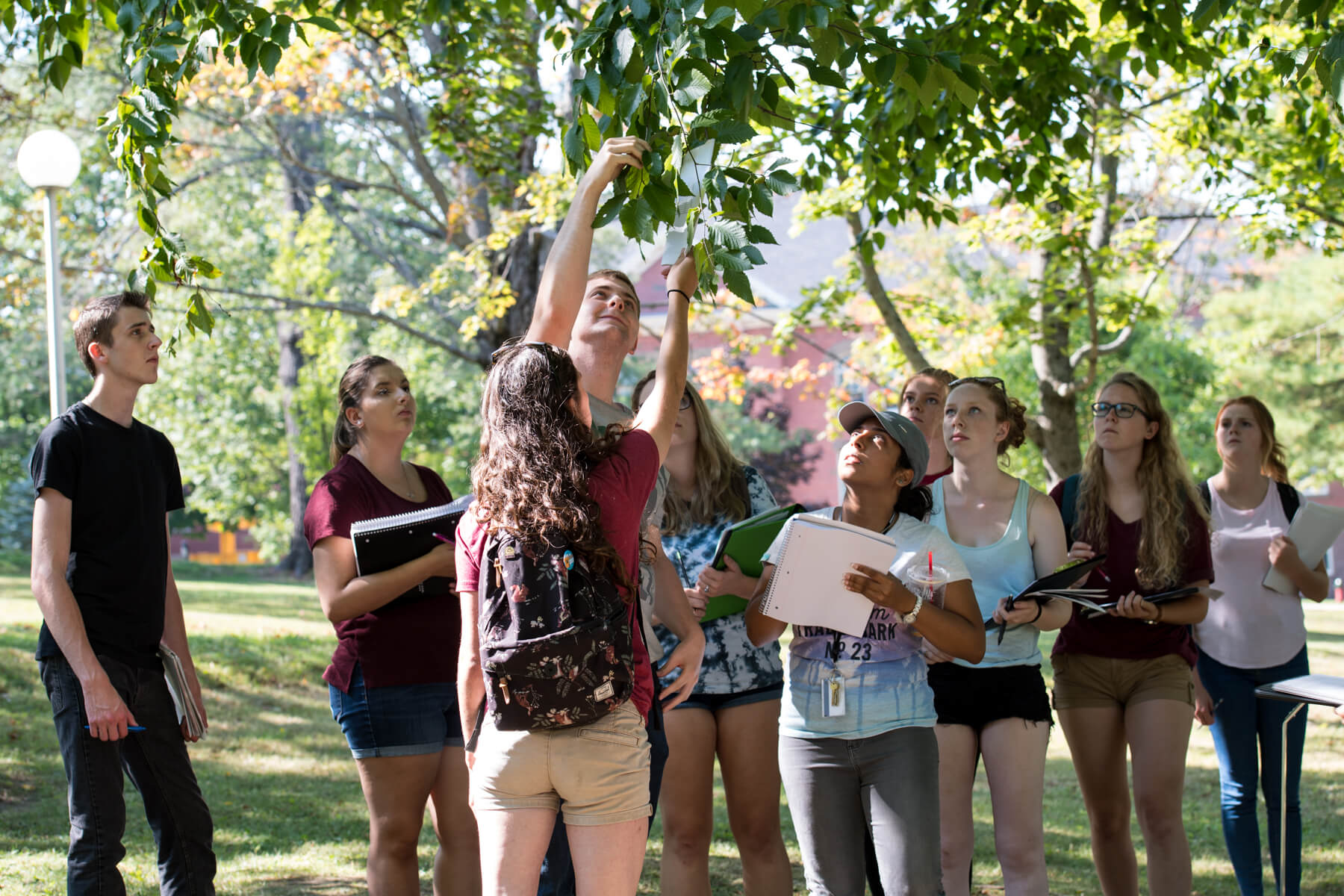Kaushal Vyas didn’t have the most traditional path to environmental management. “I did my bachelor’s in Biotechnology and tried a variety of different fields after graduating,” he shares. “My curiosity led me to work in a sales job in a digital marketing firm, study project management, and volunteer in the Clean India movement, just to name a few.”
Working in such a variety of roles ultimately led him to discover a passion for environmental studies, and he set out to find a programme that would offer the knowledge and skills he needed for the profession. Many international students spend much of their time scouring the globe for the right destination. Vyas set his sights on Canada.
“I considered Canada as a study abroad option because I fell in love with the culture and people from what I heard, read, and saw in videos from India,” he says. “When I got the offer letter from the University of New Brunswick (UNB), I was in a dreamland.”
He wasn’t disappointed. As one of Canada’s top universities, UNB offers world-class programmes amidst an intimate campus experience. It welcomes all students, including those transferring from other universities, and works with their strengths to help build them into thoughtful, creative, and independent future leaders.

A safe community environment allows students at the University of New Brunswick to take academic risks without worry. Source: UNB Faculty of Forestry and Environmental Management
UNB is set against the picturesque backdrop of Atlantic Canada, home of diverse landscapes ranging from pastoral to coastal marine, to upland rolling hills, all surrounded by a beautiful expanse of water that stretches as far as the eye can see. It’s the perfect location for any nature lover, including students looking to pursue an education in environmental studies.
UNB’s Faculty of Forestry and Environmental Management (ForEM) has been graduating students for over 100 years. All degree programmes, at undergraduate and postgraduate level, are tailored to meet a student’s individual interests while also being relevant to today’s workplace needs. These include the Bachelor of Science in Forestry and the Bachelor of Science in Environment and Natural Resources.

At the University of New Brunswick, students are taught skills relevant to a wide range of environmental fields to better prepare them for the workforce. Source: UNB Faculty of Forestry and Environmental Management
At the University of New Brunswick, students are taught skills relevant to a wide range of environmental fields to better prepare them for the workforce. Source: UNB Faculty of Forestry and Environmental Management
Vyas was accepted into the Master of Environmental Management (MEM) where he gained a theoretical grounding in biophysical and social sciences, alongside the practical skills and experience needed to work as an environmental or natural resource manager.
“In addition to the learnings that the MEM programme offered, I learned the value of teamwork, perspective, and applied knowledge,” Vyas shares. “It was a dramatic change from the way we study in India. I felt liberated with the Canadian education system, where application, imagination, and independent thinking encouraged me to be brave and try different things.”
Building student skills that are relevant to the world right now are at the forefront of UNB ForEM’s programmes, allowing for an easier transition into the workforce. To ensure this, UNB ForEM employs top researchers and instructors, all with extensive experience in the fields of forestry and environmental management.
One such professor is Janet Blackadar. With over 20 years of experience in environmental consulting and 10 years as an educator and educational administrator in Costa Rica and the West African mining industry, Blackadar is well-placed to pass on her knowledge to future leaders in the field. “My course helps prepare our students with the tools to apply in their future careers,” she shares.
A small student community means more personalised attention from UNB ForEM’s host of experienced faculty. Perhaps most prominently, however, is that the City of Fredericton — where UNB ForEM is located — provides a safe and secure community. This gives students more chances to take academic risks without having to worry about other potential factors — which in turn contributes to their personal and professional growth.
UNB ForEM’s wide network of community partnerships within the industry, including with NGOs, Indigenous groups and the government, enables students to participate in a multitude of experiential learning opportunities. For example, fourth-year undergraduate students engage in a hands-on capstone project where they solve real environmental and forest management issues for clients. This preparation is invaluable for their future careers.
“It wasn’t easy as an international student to know where one would get a job, but everyone I met was super helpful and made a real effort to help me get settled here,” Vyas says. “UNB’s work-study programme helped me get valuable work experience and build a relevant background in my field of study.” He is now working as the Safety, Health, and Environment (SHE) Coordinator at a pulp and paper mill in New Brunswick.
His experience at UNB ForEM is one he will cherish forever. “Choosing to study here was one of the best decisions I ever made,” he says. “I thoroughly enjoyed my first time outside my country at UNB’s exceptional campus and met amazing people from so many different backgrounds. All students, professors, and staff made me feel welcome and gave me a sense of belonging. I wouldn’t change a thing.”
Does this sound appealing to you? Apply here or find out more about ForEM here.
Follow the Faculty of Forestry and Environmental Management on Facebook, Twitter, Instagram, and LinkedIn
Follow the University of New Brunswick on their Facebook, Twitter, YouTube and LinkedIn.











